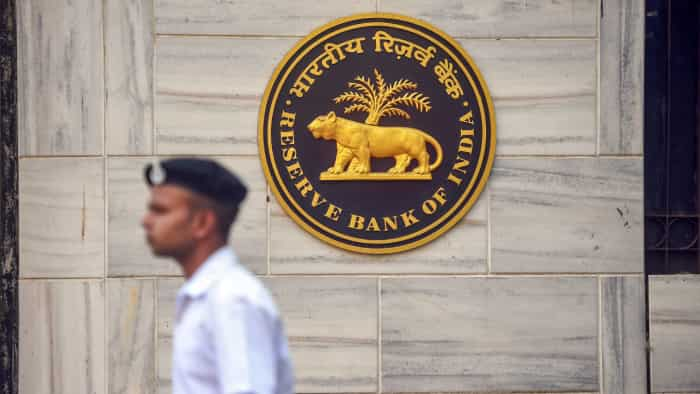Sebi floats consultation paper, proposes T+0 and instant settlement cycle on optional basis
The proposal to introduce T+0 — same-day settlement of trades on stock exchanges — and real-time settlement on an optional basis would ensure that trades are settled immediately.
)
Capital markets regulator Sebi on Friday floated a consultation paper soliciting comments and inputs from stakeholders and members of public on introduction of the facility for clearing and settlement of funds and securities on T+0 and instant settlement cycle on optional basis in addition to the existing T+1 settlement cycle in secondary markets for equity cash segment.
The proposal to introduce T+0 — same-day settlement of trades on stock exchanges — and real-time settlement on an optional basis would ensure that trades are settled immediately.
In its consultation paper, Sebi proposed introducing "the facility for clearing and settlement of funds and securities on T+0 and instant settlement cycle on optional basis in addition to the existing T+1 settlement cycle in secondary markets for equity cash segment".
Features of instant settlement mechanism:
i) Enables instant receipt of funds and securities, vis-a-vis existing pay-out on T+1 day.
ii) Eliminate the risk of settlement shortages, since both funds and securities will be required to be available before placing the order. This also eliminates the risk for market participants and reduces the risk exposure of Clearing Corporations (CCs).
iii) Strengthens investor protection by enhancing the control of the investor over the securities and funds as funds and securities would be credited into the clients’ account directly for those who are trading through blocked amount using UPI facility (“UPI Clients”).
Benefits of instant settlement mechanism:
For Clients
i) The option is expected to provide flexibility in terms of faster pay-out of the funds against the securities to the sellers and faster pay-out of securities against the funds to the buyers.
ii) The option will allow better control over funds and securities by the investors.
For the Securities Market Ecosystem
i) Shorter settlement cycle will further free up capital in the securities market thereby enhancing the overall market efficiency.
ii) The option will enhance the overall risk management of Clearing Corporations as the trades are backed by upfront funds and securities.
The proposal is in addition to the existing T+1 settlement cycle in secondary markets for equity cash segment. Sebi, which has trimmed the settlement timelines to as short as one day after transaction, is looking to shorten the same further.
Sebi, in its effort to keep pace with the changing times and carry out its mandate of development of securities markets and investor protection, shortened the settlement cycle to T+3 from T+5 in 2002 and subsequently to T+2 in 2003.
Further in 2021, T+1 settlement was introduced in a phased manner which was fully implemented from January 2023.
The Securities and Exchange Board of India (Sebi) has sought comments from the public till January 12 Sebi said that the instant settlement mechanism would enable instant receipt of funds and securities, and eliminates the risk of settlement shortages since both funds and securities will be required to be available before placing the order, and strengthen investor protection.
"Providing the option for instant settlement will help establish Indian equities as an asset class with the features of resilience, low cost and time for transaction, superior in all ways to emerging claimants of alternative asset classes," Sebi said.
On the other hand, Sebi said there are potential concerns as the new mechanism could lead to liquidity fragmentation and affect efficient price discovery; increase the cost of trading, as funds and securities need to be made available upfront before placing the orders; and result in divergence in the price of same security in T+0 or instant settlement cycle, and T+1 settlement cycle.
Mitigating the concerns, Sebi suggested that on liquidity fragmentation, there will be participants who can access both T+0 (or instant settlement) and T+1 markets and would bridge price and liquidity gaps between the two segments.
"Divergence, if any, that emerges between the T+0 / instant settlement cycle and T+1 settlement cycle may be bridged by the arbitrageurs thereby allowing for liquidity and effective price discovery in both segments," it added.
In November, Sebi chairperson Madhabi Puri Buch said that Sebi is aiming to introduce same-day settlement of trades on stock exchanges by March 2024 and eventually have a real-time settlement.
(With Agency Inputs)
Get Latest Business News, Stock Market Updates and Videos; Check your tax outgo through Income Tax Calculator and save money through our Personal Finance coverage. Check Business Breaking News Live on Zee Business Twitter and Facebook. Subscribe on YouTube.
RECOMMENDED STORIES

RBI Rule: New system for online money transfers to be implemented from April 1, 2025; here's all you need to know

Latest SBI Senior Citizens FD Rates: What will you get on maturity if you invest Rs 9,89,898, Rs 8,78,787, and Rs 6,56,565 in Amrit Vrishti, 1-, 3-, and 5-year FDs?

Rules of 72, 114, 144 & 8:4:3: How long will it take for your Rs 50 lakh investment to become Rs 1 crore?
09:34 PM IST









 Sebi introduces Mutual Funds Lite framework to boost passive fund schemes
Sebi introduces Mutual Funds Lite framework to boost passive fund schemes Not obligatory for platforms to be registered with SEBI; board clarifies on specified digital platforms
Not obligatory for platforms to be registered with SEBI; board clarifies on specified digital platforms Emerging India Focus Funds pays Rs 64 lakh to settle FPIs violation case with Sebi
Emerging India Focus Funds pays Rs 64 lakh to settle FPIs violation case with Sebi  Sebi mulls allowing only electronic mode for payment of dividend, interest
Sebi mulls allowing only electronic mode for payment of dividend, interest  Sebi bars Axis Capital from taking new debt merchant banking assignments
Sebi bars Axis Capital from taking new debt merchant banking assignments